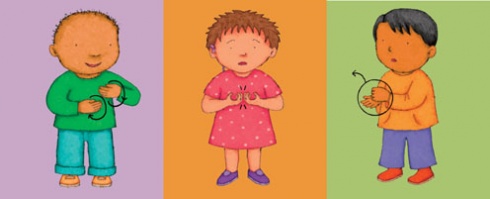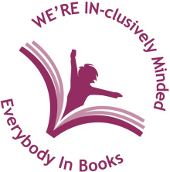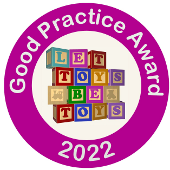
Sign Language
American Sign Language (ASL)
- is the language of America's Deaf community
- is a real, full, grammatically complex language
- is American, and not used in other countries
- is a visual language created by the Deaf community
- is used by an identifiable social language community,
so lives and changes as the society changes
American Sign Language has its own grammar and word order.
The main topic is signed before you comment on it. Rather than
saying 'This is my game' you would sign 'game – mine'.
Sign language is much more than just hand shapes and combinations.
The same signs may be used to represent a number of different things.
As well as the sign itself, expression, position and intensity of movement
play a vital part. For example, the sign for rain can be modified to show
that it is merely drizzling or raining heavily, depending on the intensity
of movement and facial expression.
Signing Exact English (SEE)
SEE is an artificial language in which signs are used in English word
order to visually support spoken English. ASL signs are used, often
in combination with the initial letter shapes for the English word.
It also includes new signs, often for grammatical concepts.
Cued Speech
Cued Speech makes traditionally spoken languages more accessible
by using eight hand shapes in four different positions near the mouth
to clarify the lip patterns of normal speech. The system was developed
with the aim of improving the reading abilities of children with hearing
impairments through better comprehension of the phonemes of English.
Cued Speech is not a sign language, but can be useful for users
of ASL wanting to learn English as a second language
(when ASL is their first language).
 Go to UK site
Go to UK site Go to AUS site
Go to AUS site


Email this page to a friend